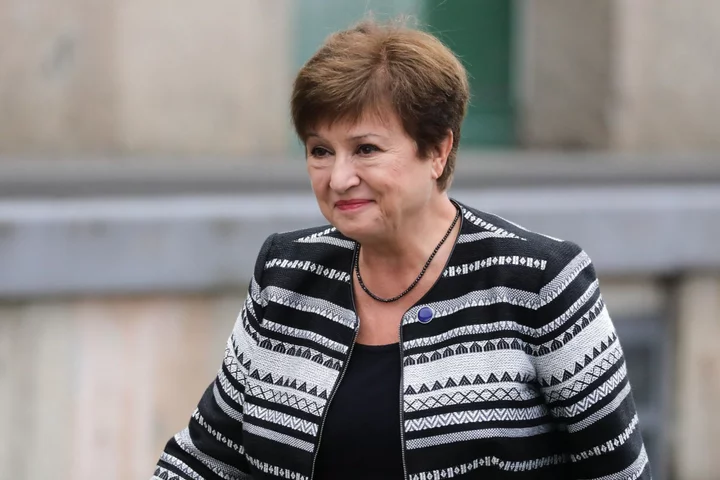The International Monetary Fund plans to speed up payments from a new program to shield countries from the fallout of global heating, and is exploring the use of swaps to provide debt relief in exchange for meeting national climate pledges.
Managing Director Kristalina Georgieva said the Resilience and Sustainability Trust, which the IMF established in 2022, has already distributed money to 11 countries, six of those in Africa, and there is a queue of over 40 awaiting assistance.
That means that the initial target of five to 10 programs a year will now need to be increased, she said in an interview before delivering a speech in Ivory Coast ahead of the IMF’s annual meetings in Morocco.
“If we are true to our word that Africa has contributed almost nothing to the climate crisis, but is most vulnerable, then we have to put money where our mouth is,” Georgieva said.
Accelerated climate aid from the IMF will help address some of the demands made by developing nations now bearing the physical brunt of the climate crisis. Africa, whose population finds itself on the frontlines of global warming, contributes just 2-3% of the world’s emissions.
“The financial needs are gigantic and Africa in particular is in a three-way funding squeeze,” she said, referring to the impact of the pandemic, Russia’s invasion of Ukraine and rising global interest rates, coupled with dollar appreciation. Bilateral assistance from rich nations has also decreased, she said.
Redirected SDRs
Much of the funding for the trust, which has already benefited Morocco and Rwanda, has come from the redirection of some of the pool of $650 billion worth of special drawing rights that the IMF issued during the pandemic.
So far $103 billion worth SDRs have been redirected by rich countries for use by the IMF and that means that the $40 billion deployed to the trust can be increased, she said.
Because the trust focuses on climate assistance, the IMF has been able to give concessional finance to climate-vulnerable middle-income countries who would not normally be eligible for low-interest loans, she said.
At the same time, the IMF is exploring the use of debt-for-nature swaps to cut debt. But it wants to alter the way they are structured.
This year the swaps, which typically see countries buy back debt and then exchange that for cheaper loans with some of the savings used for conservation, have been brokered by commercial banks in Ecuador and Gabon.
Georgieva instead wants to link the debt relief to a set of key performance indicators tied to countries’ Nationally Determined Contributions, which are commitments made to the United Nations to reduce emissions, among other climate measures.
In these there would be “a robust monitoring of how they go about implementing them. And the debt relief goes towards the whole set of objectives rather than project by project,” she said. “What is the difference when you do it project by project? You actually have a lower impact because you’re not transforming the economy.”
Georgieva said she’s sympathetic toward African demands for more concessional finance to tackle climate issues.
Still, she said a call by the African Union at the continent’s first Africa Climate Summit last month for a further $650 billion in drawing rights to fund climate resilience projects and green energy was likely unworkable.
“They’re supposed to help you be able to borrow cheaply to get your economy on a sound footing,” she said. “They’re not supposed to be an investment asset.”
--With assistance from Natasha White.

